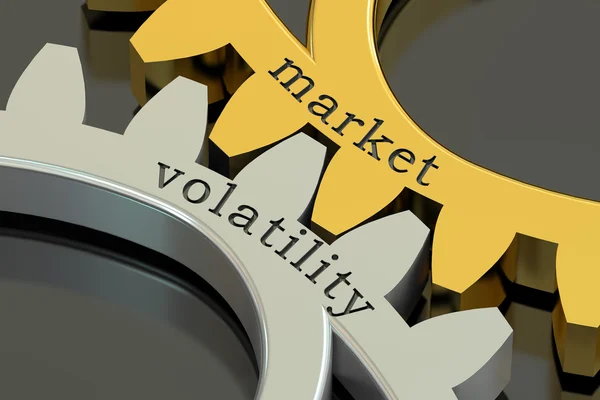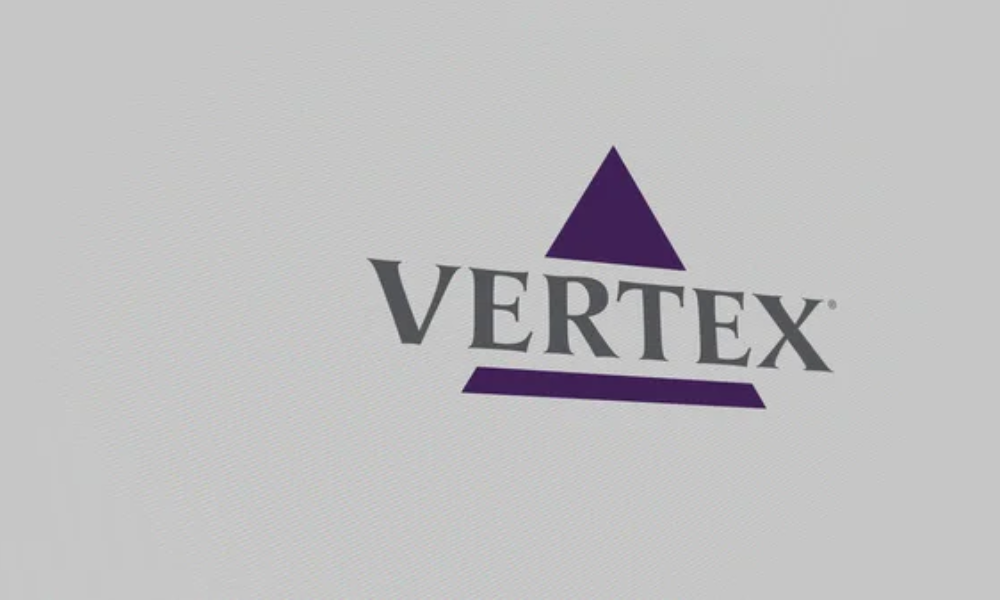Market volatility, the measure of fluctuation in asset prices within a market, is a fundamental aspect of investment dynamics.
Understanding the factors that contribute to market volatility is crucial for investors seeking to navigate the complexities of financial markets effectively. Here, we delve into major factors influencing stock market volatility, shedding light on their impact and implications for investors.
Read More: Nigeria Battles Currency Crisis and Soaring Inflation
Economic News and Data
Changes in economic indicators such as interest rates, employment figures, and GDP growth can significantly influence market volatility.

For instance, the 2008 financial crisis triggered heightened volatility as concerns over the housing market collapse and economic recession emerged.
Economic data releases serve as crucial barometers for investors, shaping expectations and driving market movements.
Political Events
Political developments such as elections, regulatory changes, and geopolitical tensions have profound effects on market sentiment and volatility.
The 2016 Brexit vote exemplifies how political uncertainty can elevate market volatility as investors grapple with the implications of significant geopolitical shifts.
Investors closely monitor political events for potential impacts on economic policies and market stability.
Market Sentiment
The collective mood of market participants, whether characterized by optimism or pessimism, can amplify market volatility. The dot-com bubble of the late 1990s showcased how exuberant market sentiment can fuel volatility as investors chase speculative opportunities. Conversely, periods of widespread pessimism can lead to panic selling and exacerbated market swings.
Also Read: Tesla Encounters Expansion Resistance in Germany
Market Manipulation
Instances of market manipulation, including insider trading and fraudulent activities, can artificially inflate or deflate asset prices, exacerbating market volatility. The Enron scandal of 2001 underscored how corporate malfeasance can trigger sharp market movements.
Regulatory oversight and transparency initiatives aim to mitigate the impact of market manipulation on investor confidence and market stability.
Natural Disasters
Natural catastrophes such as hurricanes, earthquakes, and floods can disrupt economic activity and supply chains, leading to heightened volatility.
Hurricane Katrina in 2005 catalyzed a surge in oil prices and increased market volatility due to supply disruptions.
Investors should factor in the potential economic impact of natural disasters when assessing market risk and adjusting their investment strategies accordingly.
Changes in Supply and Demand
Alterations in the supply and demand dynamics of specific assets can influence their prices and market volatility.
Privatization efforts in the European stock market during the 1980s fueled demand for newly-listed companies, contributing to increased volatility.
Supply chain disruptions, technological advancements, and shifts in consumer preferences are among the factors driving changes in asset supply and demand dynamics.
Pandemics
Pandemics like the COVID-19 crisis can trigger widespread uncertainty, disrupt economic activities, and elevate market volatility.
The onset of the COVID-19 pandemic in 2020 precipitated a surge in volatility amid concerns about its economic impact.
Economic Crises
Economic downturns, such as recessions or financial market collapsescan induce heightened market volatility as investors adopt risk-averse strategies.
The European debt crisis in 2011 underscored how sovereign debt concerns can fuel market turbulence. Investors monitor economic indicators and policy responses closely during periods of economic crises to gauge market stability and potential investment opportunities.
War
Military conflicts can instigate global economic disruptions and amplify market volatility. The US invasion of Iraq in 2003 heightened market uncertainty, reflecting apprehensions about the economic repercussions of the conflict.
Geopolitical tensions, trade disruptions, and geopolitical risks contribute to investor uncertainty and market instability during wartime scenarios.
Central Bank Policy Decisions
Central bank actions such as interest rate adjustments and quantitative easing measures can influence market sentiment and volatility.
The Federal Reserve’s rate hike in 2015 precipitated increased volatility as investors grappled with its economic implications.
Monetary policy decisions impact borrowing costs, inflation expectations, and asset valuations, shaping investor behavior and market dynamics.
Government Policy Decisions
Policy changes, including tax reforms and regulatory shifts can impact market volatility by altering industry dynamics and investor expectations.
India’s demonetization policy in 2017 spurred market volatility amid uncertainties about its economic repercussions.
Government policies shape business environments, investment incentives, and market regulations, influencing market sentiment and risk perceptions.
Yield Curve Inversion
Inverted yield curves, signaling economic pessimism, can elevate market volatility by precipitating risk-averse investor behaviors.
The US experienced heightened volatility in 2019 following yield curve inversions, reflecting concerns about economic downturns.
Yield curve dynamics serve as leading indicators of economic recessions, prompting investors to reassess their risk exposures and portfolio allocations.
Scams
Instances of fraudulent activities and investment scams can erode investor confidence, leading to heightened market volatility.
Parmalat’s accounting irregularities in 2002 sparked market turbulence as investors reacted to the scandal.
Regulatory oversight, transparency measures, and investor education initiatives aim to mitigate the prevalence and impact of investment scams on market stability.
Terrorist Attacks
Terrorist incidents can disrupt economic activities and heighten market uncertainty, resulting in increased volatility.
The September 11th attacks in 2001 precipitated market turbulence as investors grappled with the aftermath of the tragedy.
Geopolitical risks, security concerns, and societal impacts of terrorist attacks contribute to investor apprehensions and market instability.
Currency Crisis
Currency devaluations and economic instabilities can trigger currency crises, exacerbating market volatility.
The Asian financial crisis in 1997 led to significant market turbulence across the region amid currency depreciations and economic uncertainties.

Currency crises undermine investor confidence, heighten economic risks, and contribute to market contagion effects across global financial markets.
Market volatility is influenced by a myriad of interconnected factors spanning economic, political, and geopolitical domains.
By comprehending the dynamics driving market volatility, investors can better navigate turbulent market conditions and make informed investment decisions aligned with their risk tolerance and investment objectives.
Read Next: What is Unitil Corporation’s Future Growth Prospects?
DISCLAIMER
You should read and understand this disclaimer in its entirety before joining or viewing the website or email/blog list of SmallCapStocks.com (the “Publisher”). The information (collectively the “Advertisement”) disseminated by email, text or other method by the Publisher including this publication is a paid commercial advertisement and should not be relied upon for making an investment decision or any other purpose. The Publisher is engaged in the business of marketing and advertising the securities of publicly traded companies in exchange for compensation. The track record, gains, upside, and/or losses mentioned in the Advertisement, if any, should not be considered as true or accurate or be the basis for an investment. The Publisher does not verify the accuracy or completeness of any information included in the Advertisement. While the Publisher does not charge for the SMS service, standard carrier message and data rates may apply. To unsubscribe from receiving promotional text messages to your phone sent via an autodialer, using your phone reply to the sender’s phone number with the word STOP or HELP for help.
The Advertisement is not a solicitation or recommendation to buy securities of the advertised company. An offer to buy or sell securities can be made only by a disclosure document that complies with applicable securities laws and only in the states or other jurisdictions in which the security is eligible for sale. The Advertisement is not a disclosure document. The Advertisement is only a favorable snapshot of unverified information about the advertised company. An investor considering purchasing the securities, should always do so only with the assistance of his legal, tax and investment advisors. Investors should review with his or her investment advisor, tax advisor or attorney, if and to the extent available, any information concerning a potential investment at the web sites of the U.S. Securities and Exchange Commission (the "SEC") at www.sec.gov; the Financial Industry Regulatory Authority (the "FINRA") at www.FINRA.org, and relevant State Securities Administrator website and the OTC Markets website at www.otcmarkets.com. The Publisher cautions investors to read the SEC advisory to investors concerning Internet Stock Fraud at www.sec.gov/consumer/cyberfr.htm, as well as related information published by the FINRA on how to invest carefully. Investors are responsible for verifying all information in the Advertisement. As an advertiser, we do not verify any information we publish. The Advertisement should not be considered true or complete.
The Publisher does not offer investment advice or analysis, and the Publisher further urges you to consult your own independent tax, business, financial and investment advisors concerning any investment you make in securities particularly those quoted on the OTC Markets. Investing in securities is highly speculative and carries an extremely high degree of risk. You could lose your entire investment if you invest in any company mentioned in the Advertisement. You acknowledge that we are not an investment advisory service, a broker-dealer or an investment adviser and we are not qualified to act as such. You acknowledge that you will consult with your own independent, tax, financial and/or legal advisers regarding any decisions as to any company mentioned here. We have not determined if the Advertisement is accurate, correct or truthful. The Advertisement is compiled from publicly available information, which include, but are not limited to, no cost online research, magazines, newspapers, reports filed with the SEC or information furnished by way of press releases. Because all information relied upon by us in preparing an advertisement about an issuer comes from a public source, it is not reliable, and you should not assume it is accurate or complete.
By your subscription to our profiles, the viewing of this profile and/or use of our website, you have agreed and acknowledged the terms of our full disclaimer and privacy policy which can be viewed at the following link: www.SmallCapStocks.com/Disclaimer and www.SmallCapStocks.com/Privacy-Policy
By accepting the Advertisement, you agree and acknowledge that any hyperlinks to the website of (1) a client company, (2) the party issuing or preparing the information for the company, or (3) other information contained in the Advertisement is provided only for your reference and convenience. The advertiser is not responsible for the accuracy or reliability of these external sites, nor is it responsible for the content, opinions, products or other materials on external sites or information sources. If you use, act upon or make decisions in reliance on information contained in any disseminated report/release or any hyperlink, you do so at your own risk and agree to hold us, our officers, directors, shareholders, affiliates and agents harmless. You acknowledge that you are not relying on the Publisher, and we are not liable for, any actions taken by you based on any information contained in any disseminated email or hyperlink.
I’m Elizabeth Monroe, a writer who brings you stories from around the world. I’m passionate about sharing important global news and amplifying the voices of those often left unheard. Through my writing, I aim to make the world feel a bit closer and more accessible.












